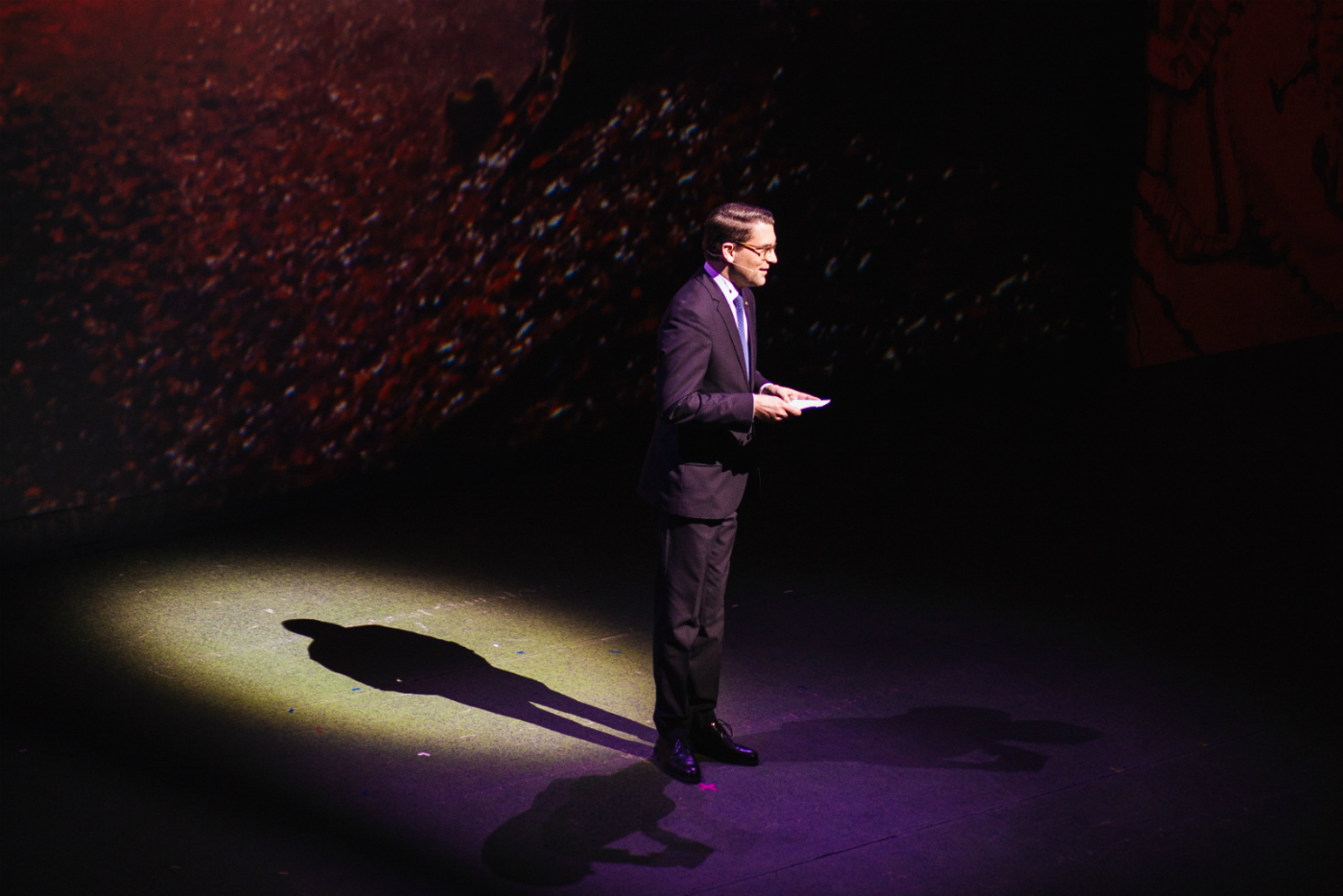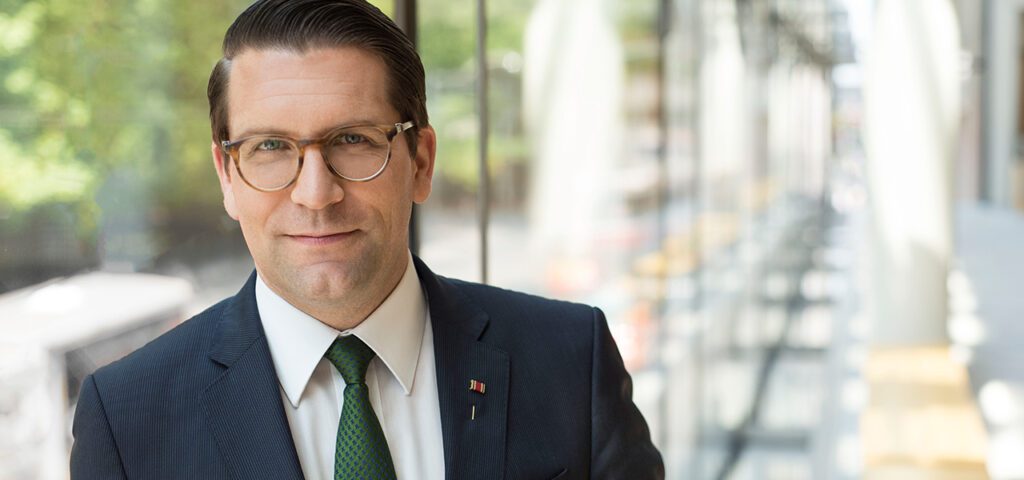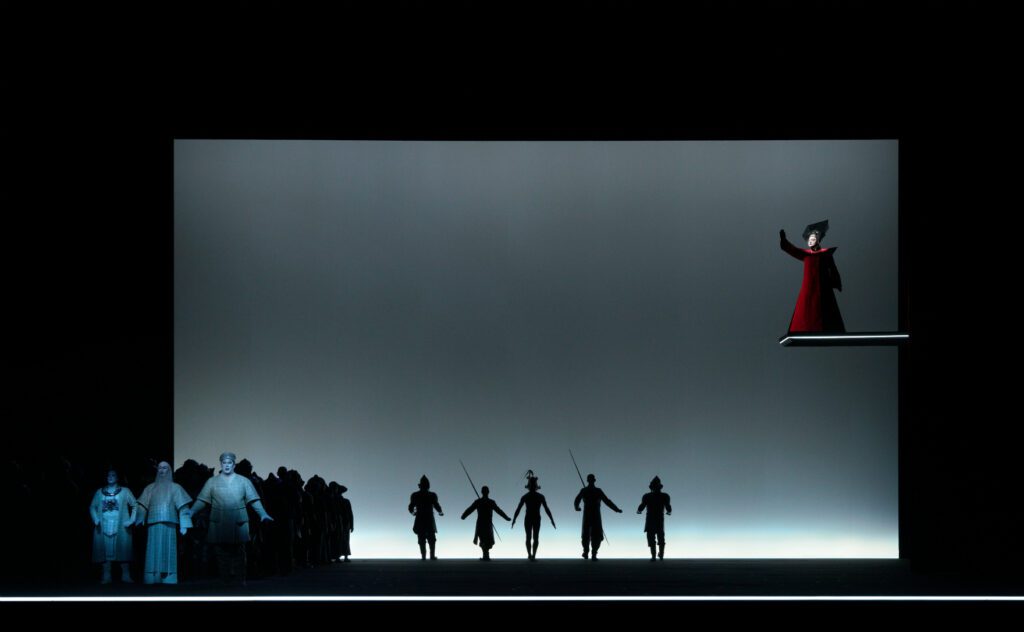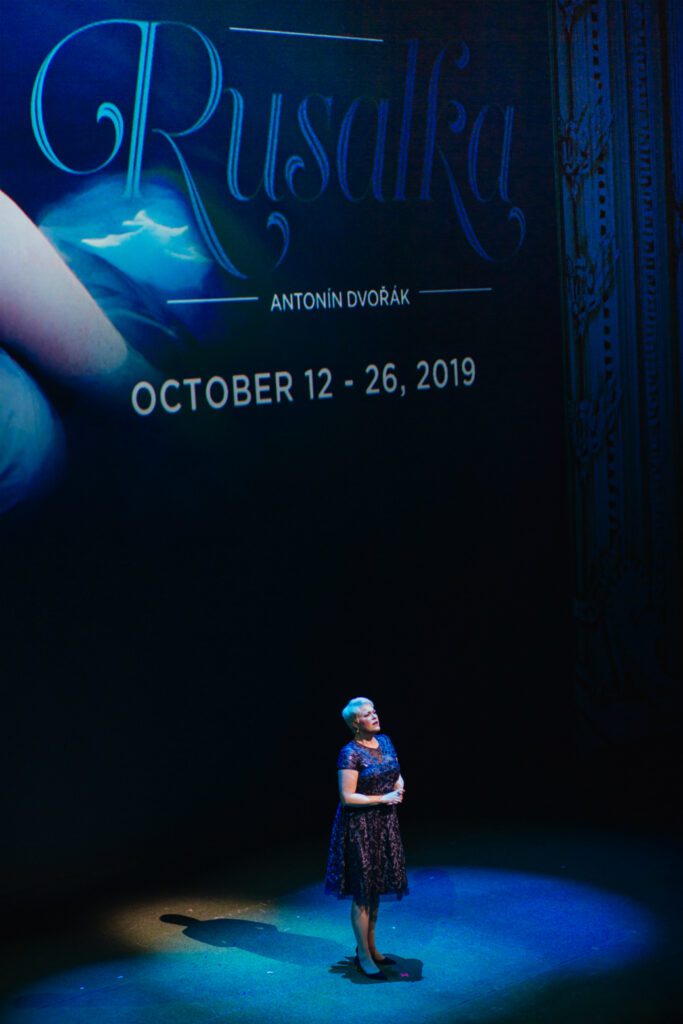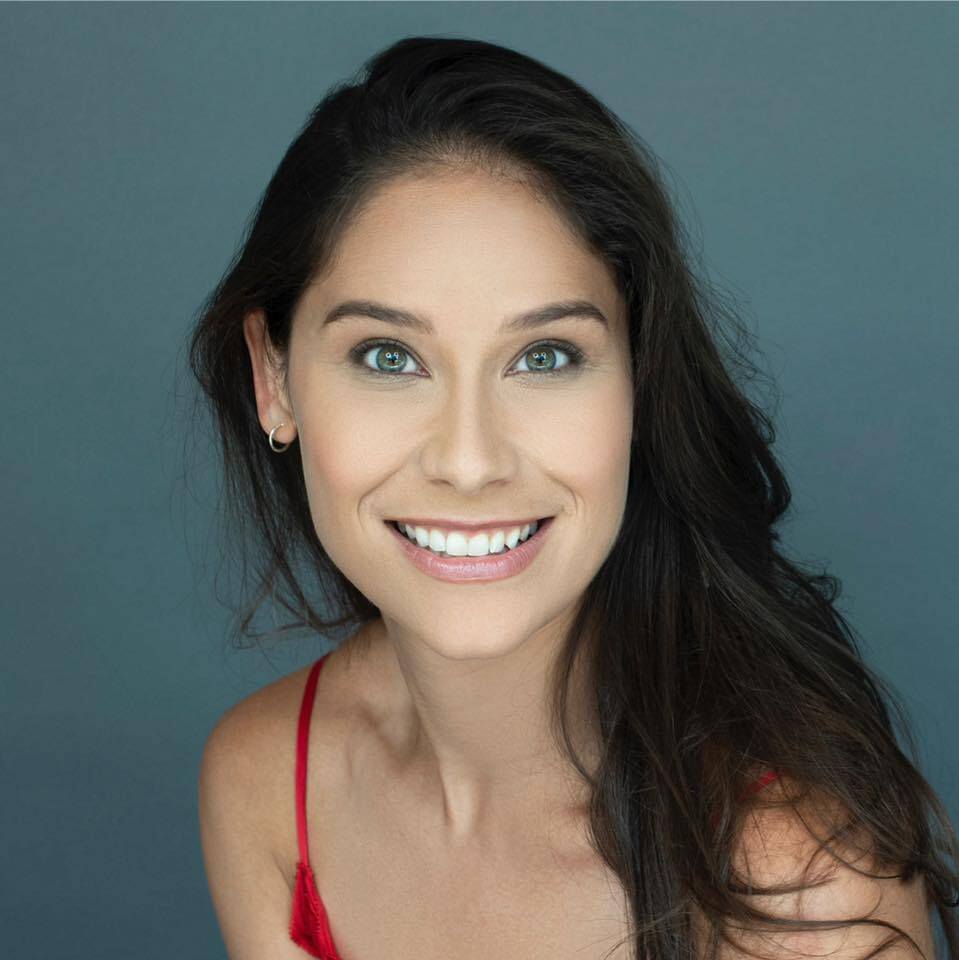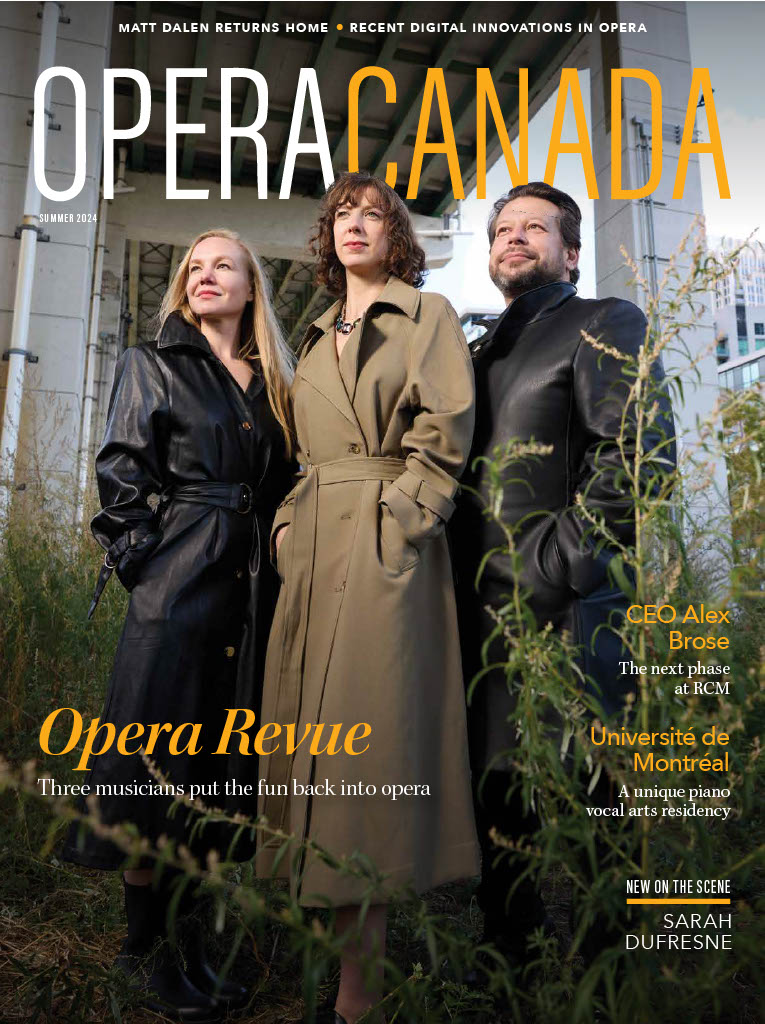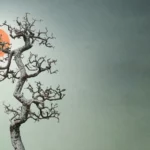The first thing to know about the 2019-2020 Canadian Opera Company season is this: Parsifal is coming to Toronto, but not quite yet. The lauded Metropolitan Opera/Opéra National de Lyon/COC co-production, which premiered in Lyon in 2012 and New York in 2013, has been a long-awaited project for Canadian opera lovers.
We announced it for the fall of 2020,” says COC General Director Alexander Neef with a chuckle, “that hasn’t changed—at this point it’s unlikely to change.”
Toronto opera lovers are being given a varied season that contains a mix of old and new, with some ballsy directorial choices. Opening the season will be new productions of Puccini’s Turandot and Dvořák’s Rusalka in the autumn, a revival of Rossini’s The Barber of Seville and a new production of Humperdinck’s Hansel & Gretel in winter, and revivals of Verdi’s Aida, and Wagner’s The Flying Dutchman in spring.
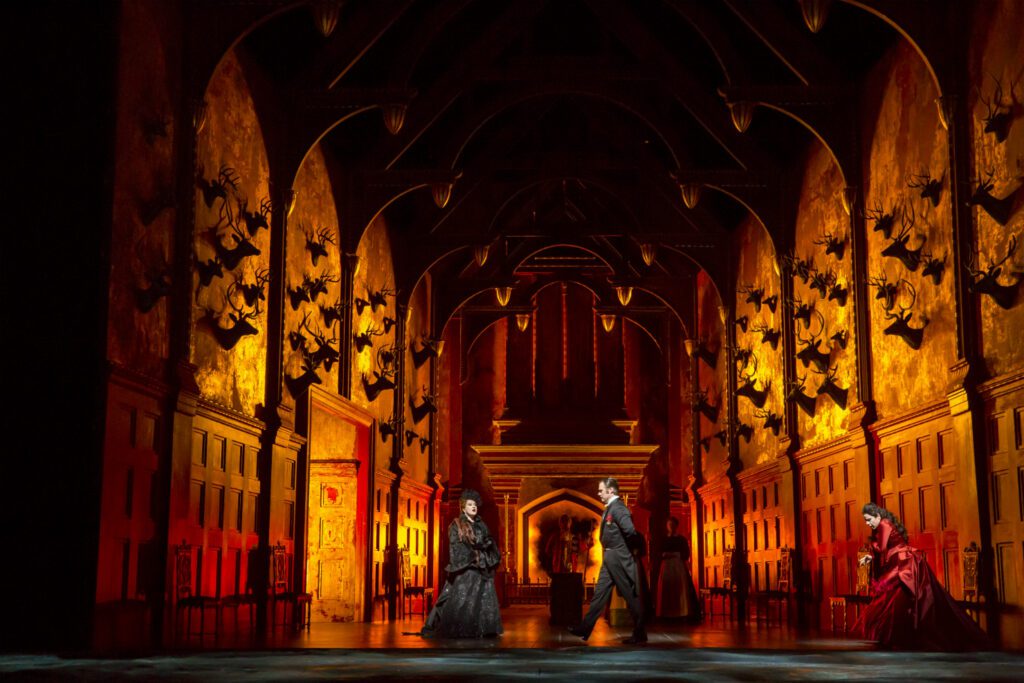
Scene from David McVicar’s Lyric Opera of Chicago production of Rusalka, 2014. Photo: Todd Rosenberg
It’s not so much that the three new productions and three revivals comprising the new season are ostensibly safe bets; there’s nothing safe about reviving the entirely modern, camel-free Tim Albery production of Aida, featuring soprano Tamara Wilson, tenor Russell Thomas, mezzo soprano Clémentine Margaine, and bass Goderdzi Janelidze. The sleek modern production (which features a decidedly non-glitzy Triumphal March) was widely reviled upon its initial presentation in 2010. “There’s nothing wrong with going modern,” the Star’s John Terauds wrote at the time, “(b)ut Albery’s work consistently gets in the way of a simple, powerful, 140-year-old story of doomed love.”
“It’s always worth revisiting something where you’ve done things that defy the audience’s expectations,” Neef says. “The second time you do it, that expectation will have mellowed somehow, and it allows us to come from the angle of revisiting it and asking, is it still valid? At the very beginning of our discussion, Tim (Albery) and I said, ‘We don’t want an excess of pageantry.’ So audiences coming to see it now may ask themselves, ‘How is this going to resonate with me when I see it again?’ For new audiences I think there’s an opportunity for us to say that 19th-century opera doesn’t have to be The Big Pageant.”
That turn away from decadence is echoed in the choice of Robert Wilson to direct the season-opening Turandot, which will also feature the COC debuts of tenor Sergey Skorokhodov (sharing the role of Calaf with Kamen Chanev who appeared in the company’s 2017 Tosca) and bass Stefan Kocan as Timur; Tamara Wilson and Marjorie Owens share the title role. Wilson, known for his strikingly minimalist approach, is the precise stylistic opposite of what so-called ‘traditional’ production lovers may wish for in relation to a staging of Puccini’s final work.
“We were interested in a more modern version of Turandot, one that is not within the context of 19th-century exoticism, but within the context of 20th-century modernism,” Neef says. To present a piece like Turandot in the current cultural climate, we need it “to ask, ‘What is in there for us today?’ It has to be something that does not necessarily fulfill the traditional expectations of what that is supposed to be.”
There are certainly expectations tied to an opera like Rusalka, to be directed by Sir David McVicar. The 1901 work, which Neef calls “an adult fairytale,” will feature soprano Sondra Radvanovsky in the title role, tenor Pavel Černoch as the Prince, bass Matthew Rose and Slovak bass Stefan Kocan sharing the role of Vodnik, mezzo soprano Elena Manistina as Ježibaba and soprano Keri Alkema as the Foreign Princess. It’s a work which is, according to Neef, more modern than it initially seems.
“I’ve always looked at it as Dvořák coming to terms with the Ring Cycle,” he explains. “At the beginning, it’s kind of the Rhinemaidens scene with Alberich, right? He found a way to break away from this overbearing Wagnerian model and charted a new way for opera in that instance. I look at it as a modern piece, even though, in terms of tonality, it might have stronger ties to the 19th century…but as we see in the 21st century, tonality is a thing again! So I think it always depends on the context in which you allow yourself to look at these pieces.”
It’s a sentiment that could well be applied to the entirety of the 2019-2020 COC season. The connections between the perceived grandeur of Turandot and Aida, the fairytale worlds of Rusalka and Hansel and Gretel, and even the weighted historicity of The Barber of Seville and The Flying Dutchman, are ones worth examining within the context of a 21st-century framework. In choosing to pair these works with modern directors (Against The Grain Theatre Company’s pointedly anti-traditional Joel Ivany will helm Hansel and Gretel), there is perhaps a conscious and not altogether unsubtle turn away from the expectations of audiences who, as Neef admits, gravitate toward what he terms “title recognizability.” What’s more important, he believes, is that audiences coming to the Four Seasons Centre are given the opportunity to have a personal experience with the art form, as opposed to having their expectations of ecstasy easily fulfilled.
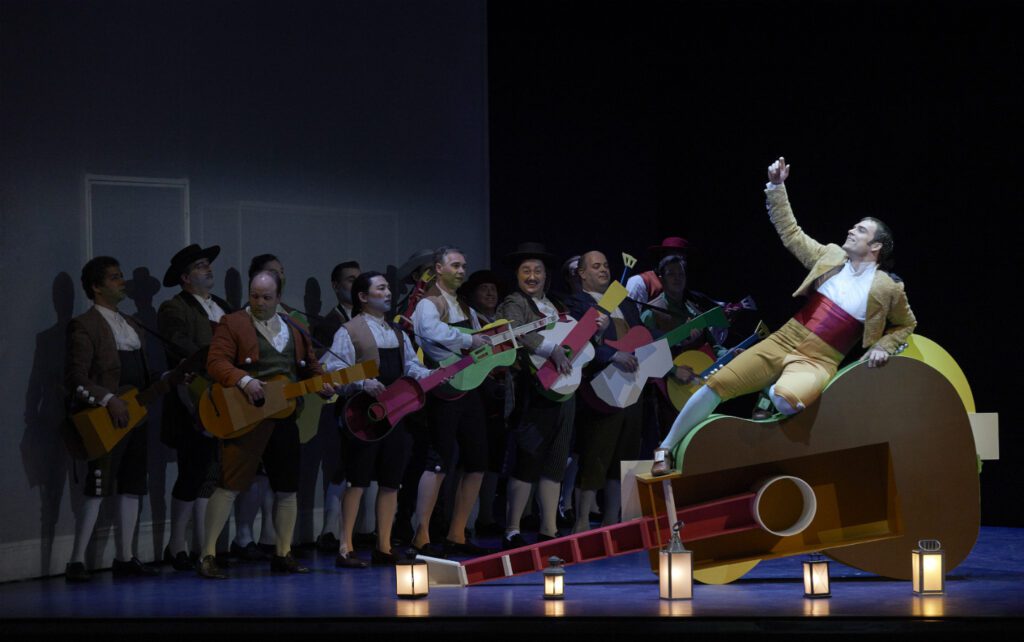
Alek Shrader (Count Almaviva) Canadian Opera Company’s The Barber of Seville, 2015. Photo: Michael Cooper
“I firmly believe that if you try to define it too much people will not find that space for themselves. Something that’s intellectually challenging but also something a little bit enigmatic that invites questions…that’s a theme that runs through the whole season…these are pieces that defy a single interpretation. As I’ve said before, I’m not running a school or a museum—we’re not here to teach ‘the truth’—we’re inviting people to find their own truth.”

